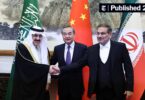Speaking at interactive session at Karachi Chamber of Commerce and Industry, Chairman Federal Bureau of Revenue Shabbar Zaidi assured the business community that the Prime Minister and his cabinet are committed to provide maximum support and facilitation to the private sector to boost economic growth and jobs creation opportunities on a larger scale. After assuming the charge of Chairman FBR he has taken certain measures to revive the confidence of business leaders by prohibiting the tax collection authorities from freezing bank accounts of business houses without seeking his prior permission. He is also reported to have said that 30 percent of bank accounts are Benami and the tax amnesty scheme will facilitate their mainstreaming. The Chairman FBR had issued orders stopping tax officials from conducting raids on business houses and industries.
The confidence building measures taken by the new FBR Chairman alone cannot restore the confidence of entrepreneurs and businessmen as the overall regressive fiscal regime and continued deterioration in economic environment have resulted in the flight of capital and brain drain. The grave economic crises produced by the previous two governments are now heading towards the financial crisis. Fast depreciation of local currency against the US dollar and other major foreign currencies seems the harbinger of financial crisis as the central bank has not intervened to stabalise the rate of exchange of local currency.
The economic development models of highly industrialized western countries, Japan and the Asian Tigers that emerged since 1980s-90s tell that private sector played the role of engine of economic growth and prosperity. In the case of Pakistan too it was the private sector that contributed in a big way to achieving economic growth rate of 8.5 percent in the manufacturing sectors in the decade of 1960s during which the employment situation was also satisfactory. The government at that time provided liberal incentives of easy credit facility, simplified tax regime, induction of contemporary technologies and encouraging product innovations. It is a very sad chapter of Pakistan’s political and economic history of Pakistan that oligarchic elected governments implemented economic policies that first destroyed the private sector and then hindered its revival, growth and progress with regressive taxation regime and installing the most expensive power generation, and distribution system.
The elected government of Z.A Bhutto implemented a deliberate and brute policy of nationalisation of all industries including the small rice husking mills and private banks. The imports of industrial raw material and intermediate goods for export industries were made expensive with reckless devaluation of currency by more than 60 percent without any compelling reasons. The confidence of exporters was further shattered by withdrawing the export facilitation incentives including the “Bonus Voucher” scheme. The disastrous result was that GDP growth rate fell from 8 percent to 2.2 percent despite appreciable increase in home remittances by Pakistani workers from Saudi Arabia and countries of the Persian Gulf.
The period between 1978 and 1988 witnessed some revival of economy but the upward swing of business cycle came to standstill in the elected governments of Benazir Bhutto in 1989 and recessionary cycle started since then continued during the governments of both mainstream political parties. The losses of hemorrhaging state enterprises increased every year which now devour Rs. 1200 billion every year. The Musharraf era of 200-04 showed economic revival and economic growth rate went up to 8 percent. It was in his government that Pakistan Steel Mill became profit earning state entity and a number of IPPs agreed to lower the electricity tariff
From 2008 till date the regressive fiscal measures of increasing the rates of indirect taxes and tariff hikes of electricity and gas has become a regular feature of filling the fiscal black hole which further vitiates the already sky-high cost of doing business for private sector investment.
The successive governments wasted trillions of rupees for keeping afloat the huge losses incurring public sector enterprises but turned a blind eye to provide financial support to the private sector for moving from second generation technology to the 4th and 5th generation technologies which the developing countries of this region are applying and have achieved spectacular gains in producing high quality and cheap export products. Likewise, the institutions of Research and Development have been made redundant to slam the doors on product innovations. Private sector can grow and flourish only when the taxation regime is made progressive and simple and more importantly lower the tariffs of energy inputs.






